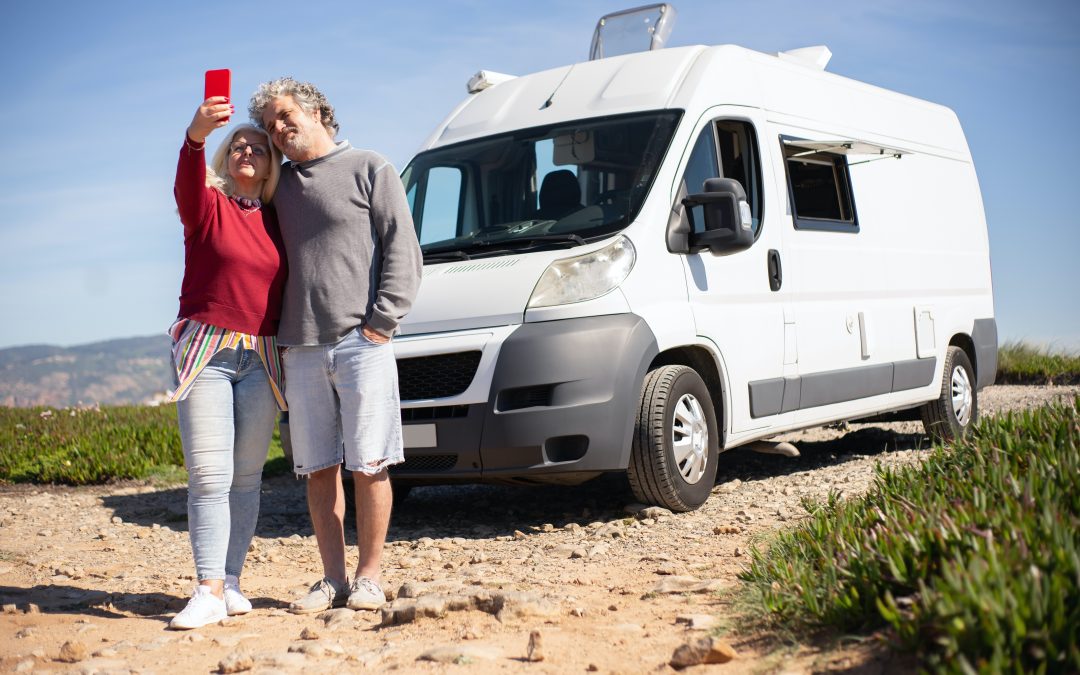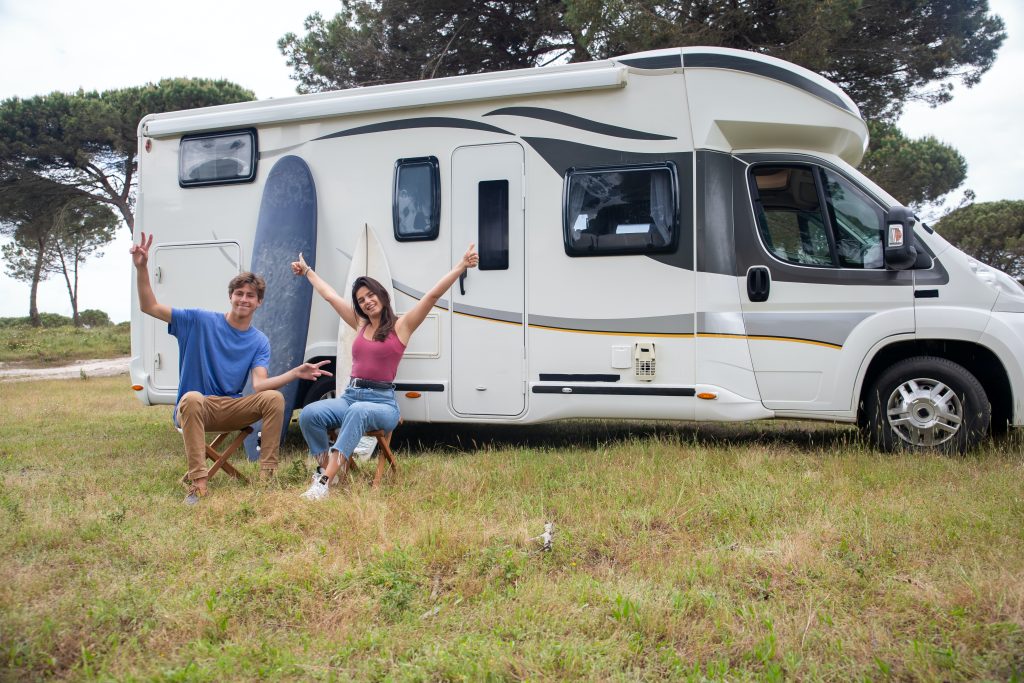Camping Off the Grid
Imagine gazing up at a million twinkling stars, a sight impossible from the city. The only sounds are a crackling campfire and the gentle hum of your RV’s fridge. This isn’t a dream, it’s the magic of RV boondocking!
RV boondocking, a self-sufficient camping style offering no hookups for water, sewer, or electricity, lets you ditch the crowded campgrounds and experience the freedom of the outdoors in your RV. It’s about self-sufficiency, connecting with nature on a deeper level, and embarking on unforgettable adventures. The best part? RV boondocking is a budget-friendly way to explore hidden gems and create memories that will last a lifetime.
Understanding RV Boondocking
What is RV Boondocking?
Forget crowded campgrounds and noisy hookups! RV boondocking, also known as dry camping, lets you experience the true wilderness in your RV. It’s all about remote location camping, where you’ll rely on your RV’s capabilities for power, water, and waste management. You’ll become self-sufficient, truly immersed in nature’s beauty and tranquility.
Why Choose Boondocking?
So why ditch the traditional campground for boondocking? Here are some reasons that might just have you packing your bags:
- Adventure Awaits: Boondocking opens doors to hidden gems, breathtaking landscapes, and secluded spots traditional campgrounds can’t offer.
- Embrace the Quiet: Escape the noise and crowds of campgrounds. Enjoy the serenity of nature with just the sounds of wildlife and the crackling campfire.
- Nature Connection: Unplug and truly connect with the natural world. Boondocking offers a deeper immersion in nature’s beauty and peacefulness.
- Budget-Friendly: Skip the campground fees! Boondocking lets you explore on a budget, saving money you can put towards other adventures.
Boondocking offers a unique camping experience that traditional campgrounds just can’t replicate. It’s about adventure, solitude, and a deeper connection with nature, all at a fraction of the cost.
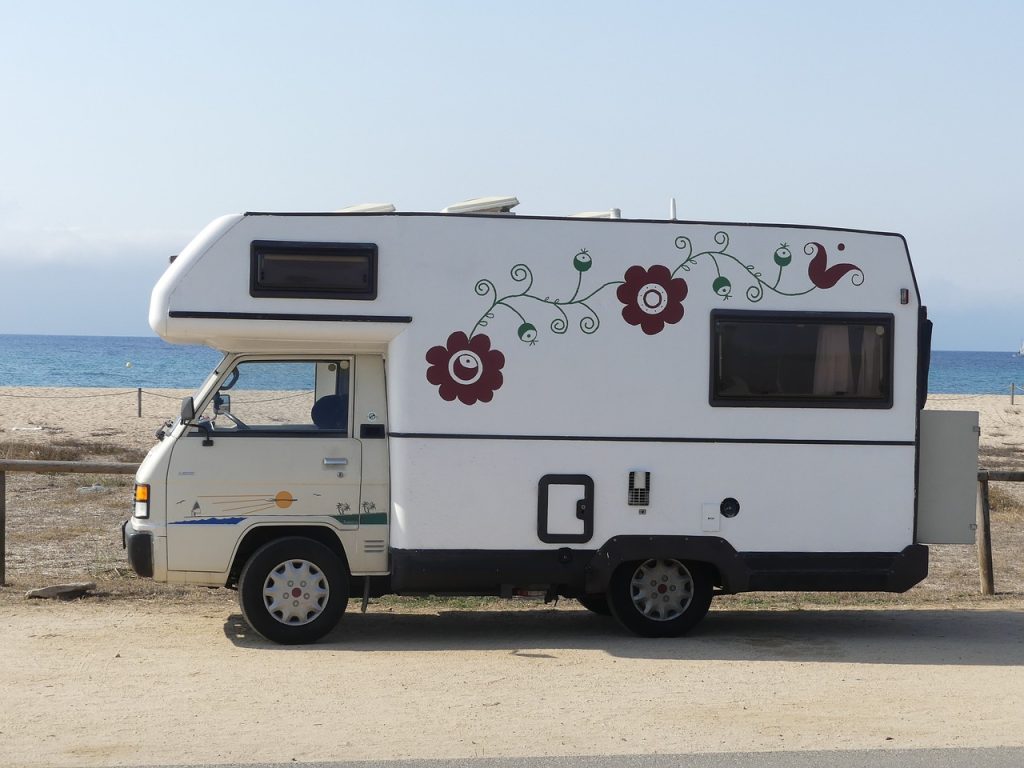 Image by Edit Nyúlné Terpó from Pixabay
Image by Edit Nyúlné Terpó from Pixabay
Preparing for Your Boondocking Adventure
Selecting the Right RV:
Not all RVs are created equal for boondocking. Here’s what to consider when choosing your off-grid chariot:
- Battery Power: Boondocking means relying on your RV’s battery for lights, appliances, and entertainment. Opt for a large battery capacity or consider additional batteries to extend your off-grid time.
- Water Storage: Fresh water is essential. Choose an RV with ample water storage tanks and consider installing a greywater tank to reuse water for non-drinking purposes.
- Appliance Efficiency: Every watt counts! Look for energy-efficient appliances like LED lighting and propane-powered options to minimize battery drain.
Evaluating your RV: Take a critical look at your current RV. Can you upgrade the battery system? Are there water-saving measures you can implement? Even small adjustments can make a big difference on your boondocking adventure.
Essential Gear and Modifications:
Now that you have the right RV, let’s outfit it for off-grid living!
- Solar Power: Sunshine is your friend! Solar panels are a game-changer for boondocking, allowing you to recharge your batteries and extend your stay in remote locations.
- Water Conservation Tools: Every drop counts! Consider a showerhead with a lower flow rate, a water pressure regulator, and even a portable greywater tank to capture used shower water.
- Proper Insulation: Don’t let temperature fluctuations ruin your adventure. Ensure your RV has adequate insulation to keep you comfortable in all weather conditions. This will help minimize reliance on your heating and cooling systems, saving precious battery power.
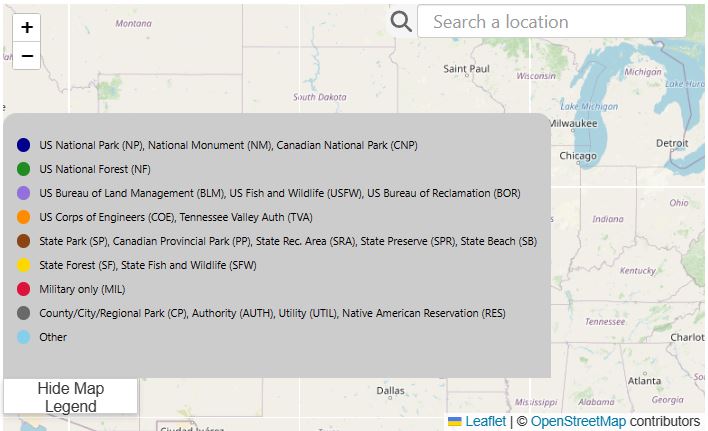 Free or Cheap Campsite Finder via Boondock or Bust
Free or Cheap Campsite Finder via Boondock or Bust
Finding Boondocking Locations
The beauty of boondocking lies in exploring off-the-beaten-path locations. But where do you even begin to look? Here’s your guide to finding those hidden camping gems:
- Digital Treasure Map: Technology is your friend! Several apps and websites cater specifically to boondocking, allowing you to search for dispersed camping areas managed by public lands like the Bureau of Land Management (BLM) and National Forest Service (USFS). These resources often provide detailed information about amenities (or lack thereof!), reviews from other boondockers, and even photos to help you visualize your perfect campsite.
- Community Connection: Don’t underestimate the power of the boondocking community! Online forums, social media groups, and even RV clubs are fantastic resources for discovering hidden gems and getting recommendations from experienced boondockers.
- Remember the Rules: Freedom comes with responsibility. Before setting up camp, be sure you’re on public land designated for dispersed camping. Always check local regulations and restrictions. Respecting private property is paramount. Never camp on private land without explicit permission from the landowner.
- Leave No Trace: Boondocking allows you to experience the beauty of nature, so let’s leave it pristine for others to enjoy. Follow Leave No Trace principles to minimize your impact on the environment. Pack out all trash, avoid disturbing wildlife habitats, and leave your campsite cleaner than you found it.
By utilizing these resources and practicing responsible camping, you’ll be well on your way to finding those hidden boondocking gems and creating unforgettable adventures!
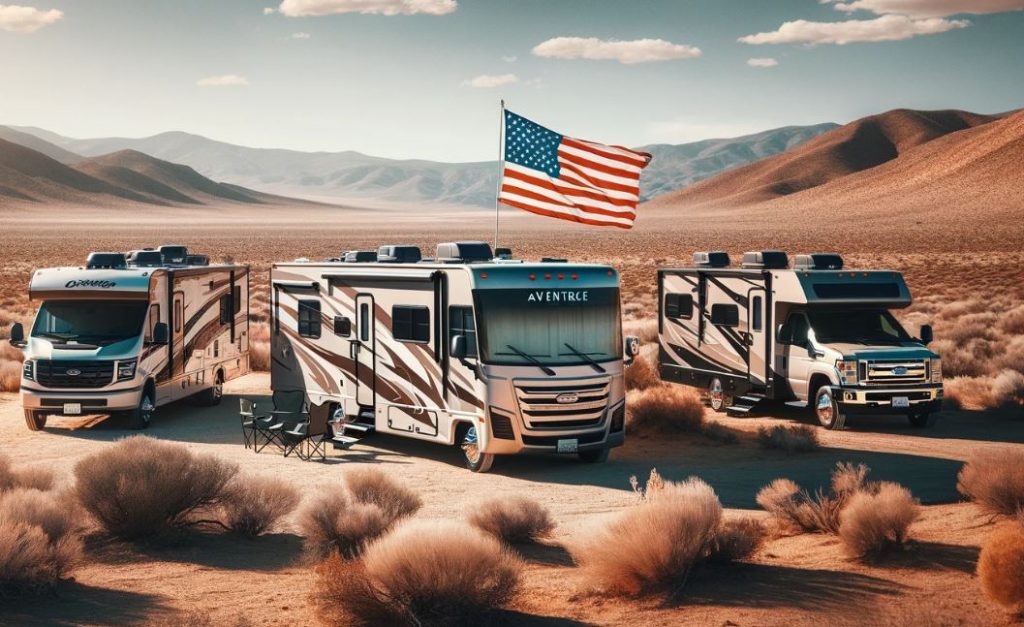
Living Off the Grid
Boondocking lets you experience the freedom of the outdoors, but it also requires self-sufficiency when it comes to managing resources. Here’s your guide to mastering the essentials of living off the grid:
Managing Water Usage: Every drop counts! Here are some strategies to maximize your water supply:
- Conservation is Key: Implement water-saving habits like taking shorter showers, using a spray bottle for washing dishes, and minimizing water used for cooking.
- Maximize Storage: Consider these options: filling your fresh water tank to capacity before heading out, using a portable water bladder for additional storage, and carrying refillable water jugs for drinking water.
- Refill Rendezvous: Planning is key. Research potential water refill locations along your route using apps like iOverlander or boondocking websites. National parks, campgrounds with fill stations (even if you’re not staying there), and some towns may offer refill opportunities. Remember, some refill stations may have fees or restrictions, so be sure to plan accordingly.
Power Management:
- Harnessing the Sun: Solar panels are your best friend for boondocking. Optimize their efficiency by positioning them for maximum sunlight exposure throughout the day. Keep the panels clean for optimal power generation.
- Generator Guidelines: Generators can be a backup power source, but use them responsibly. Consider fuel efficiency and noise levels when choosing a generator. Remember, generators can be disruptive to fellow campers and wildlife, so use them sparingly and only when necessary. Explore alternative charging methods like shore power at rest areas (if available) during travel days to minimize generator use.
Waste Management:
Living off the grid doesn’t mean leaving a trace. Proper waste disposal is essential:
- Pack It In, Pack It Out: Everything you bring in, you must take out. Dispose of trash properly in designated bins or haul it out with you.
- Leave No Trace: Respect the environment by using designated waste facilities and following Leave No Trace principles. This includes minimizing greywater discharge (used shower water) and properly disposing of toilet waste in approved dump stations.
By following these tips, you’ll be well on your way to managing your resources responsibly and enjoying a sustainable boondocking experience.
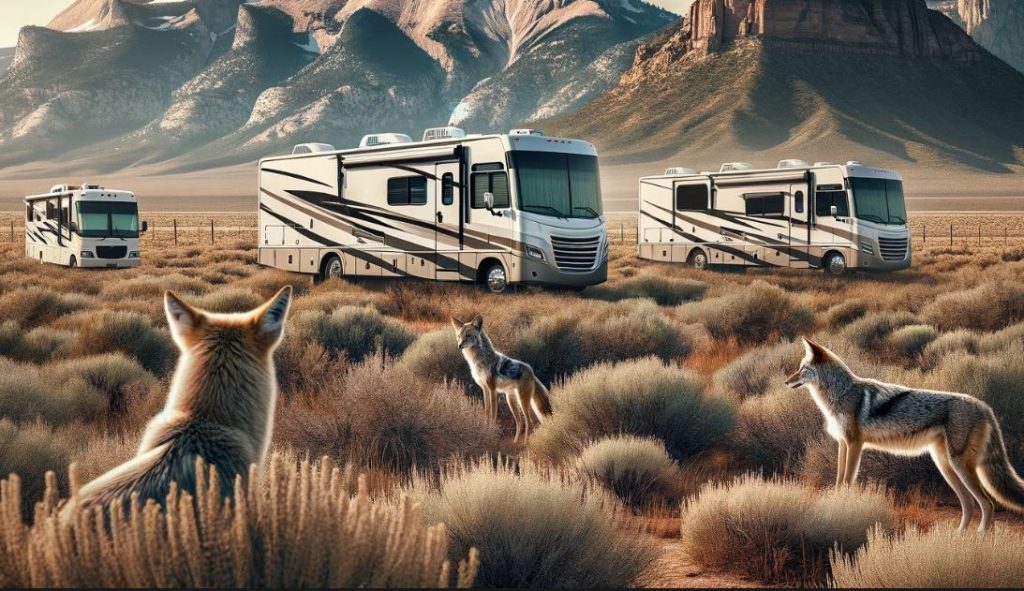
Staying Safe While Boondocking
Boondocking offers a unique adventure, but venturing into remote locations requires a focus on safety. Here’s how to ensure a worry-free experience:
Personal Safety:
- Plan and Share: Before heading out, create a trip plan and share it with trusted friends or family. Include your itinerary, camping locations, and estimated return date. This allows them to raise the alarm if they don’t hear from you as expected.
- Pack Essentials: Be prepared for emergencies. Pack a first-aid kit, basic tools, a safety whistle, and an emergency communication device (consider a satellite communicator if cell service is unreliable in your chosen areas).
- Be Fire Aware: Always follow local fire restrictions and regulations. Clear a designated campfire area and extinguish fires completely before leaving your campsite.
- Be Weather Wise: Check the weather forecast before your trip and be prepared for changing conditions. Pack appropriate clothing and gear for the expected weather.
Wildlife Encounters:
- Respect Their Territory: You’re a guest in nature’s domain. Research the wildlife in your chosen location and learn about their behavior.
- Store Food Securely: Food scraps and cooking smells can attract wildlife. Store all food and toiletries in airtight containers inside your RV or a bear-proof cooler.
- Maintain a Clean Campsite: Don’t leave food or trash lying around. This can attract curious animals and potentially lead to dangerous encounters.
- Give Wildlife Space: Never approach wild animals. Admire them from a safe distance and avoid anything that might startle them.
By following these safety precautions and practicing responsible coexistence with wildlife, you’ll ensure a safe and enjoyable boondocking adventure.
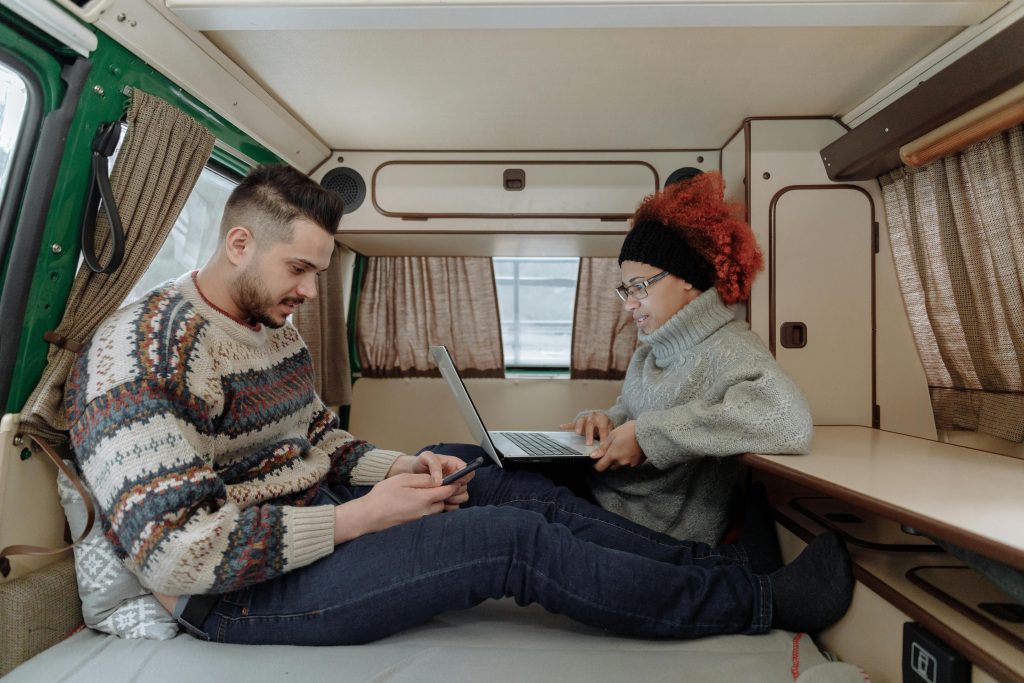 Photo by Thirdman
Photo by Thirdman
The Boondocking Community
Boondocking isn’t just about the solitude; it’s also about a shared love for the outdoors and the unique camaraderie among RVers who embrace this off-grid lifestyle. Here’s how to navigate the boondocking community:
Respect and Responsibility:
- Leave No Trace: This golden rule applies not just to the environment but also to respecting fellow boondockers. Pack out all trash, minimize noise during quiet hours, and be mindful of your campsite placement to avoid obstructing others’ views.
- Campsite Courtesy: Practice good neighborliness. Keep your campsite clean and organized, and avoid loud music or disruptive behavior. If you have a generator, use it sparingly and consider notifying nearby campers before running it.
- Minimize Light Pollution: Shield your outdoor lights to minimize light intrusion on others’ campsites.
Shared Stewardship:
Boondocking relies on everyone doing their part to protect these off-grid havens. Here’s how you can contribute:
- Tread Lightly: Stick to designated campsites and established roads to minimize environmental impact.
- Respect Wildlife Habitat: Be aware of sensitive areas and avoid disturbing wildlife habitats.
- Report Issues: If you encounter vandalism or improper waste disposal, report it to the appropriate authorities to help maintain these boondocking locations for everyone to enjoy.
Connecting with Fellow RVers:
The boondocking community is a wealth of knowledge and a great source of friendship. Here’s how to tap into it:
- Online Forums & Social Groups: Join online forums and social media groups dedicated to boondocking. Share your experiences, ask questions, and connect with other boondockers for tips and recommendations.
- RV Clubs: Many RV clubs organize boondocking outings and rallies. This is a fantastic way to meet like-minded people and discover new locations.
- Strike Up a Conversation: Don’t be afraid to chat with fellow boondockers! Share stories, swap tips, and build lasting friendships based on your shared love for the outdoors.
By following these guidelines, you can be a responsible and respectful member of the boondocking community, ensuring a positive experience for everyone while fostering the camaraderie that makes this off-grid adventure so special.
Conclusion: Embrace the Freedom
RV boondocking offers a unique and rewarding way to experience the outdoors. It’s a chance to escape the crowds, immerse yourself in nature’s beauty, and test your self-sufficiency skills.
Sure, there are challenges – managing resources, planning for remote locations, and ensuring safety. But the rewards far outweigh them. Imagine waking up to a breathtaking sunrise, stargazing under a blanket of stars with no light pollution, and forging connections with fellow adventurers who share your love for the open road.
Embrace the Adventure!
Boondocking is an opportunity to reconnect with nature, challenge yourself, and create unforgettable memories. So, pack your RV, stock up on essentials, and get ready to experience the magic of off-grid camping. The adventure awaits!
Resources
- Bureau of Land Management (BLM) – https://www.blm.gov/programs/recreation/camping The official website of the BLM, providing information on public lands managed by the agency, including designated boondocking areas and camping regulations.
- Campendium’s Boondocking Guide – https://www.campendium.com/camping/boondocking/ A comprehensive guide to boondocking, including tips, tricks, and a directory of boondocking locations throughout the United States.
- Allstays Boondocking Locations – https://www.allstays.com/Campgrounds/boondocking-locations.htm A searchable database of boondocking locations, including user reviews, GPS coordinates, and other helpful information for RVers looking for off-grid camping spots.
- Free Campsites – https://freecampsites.net/ A community-driven website featuring free and low-cost campsites across the United States, including boondocking locations on public lands and private properties.
- RVLife’s Guide to RV Boondocking – https://rvlife.com/rv-boondocking-guide/ An in-depth guide to RV boondocking, covering topics such as finding the right location, conserving resources, and maximizing the enjoyment of off-grid camping experiences.

